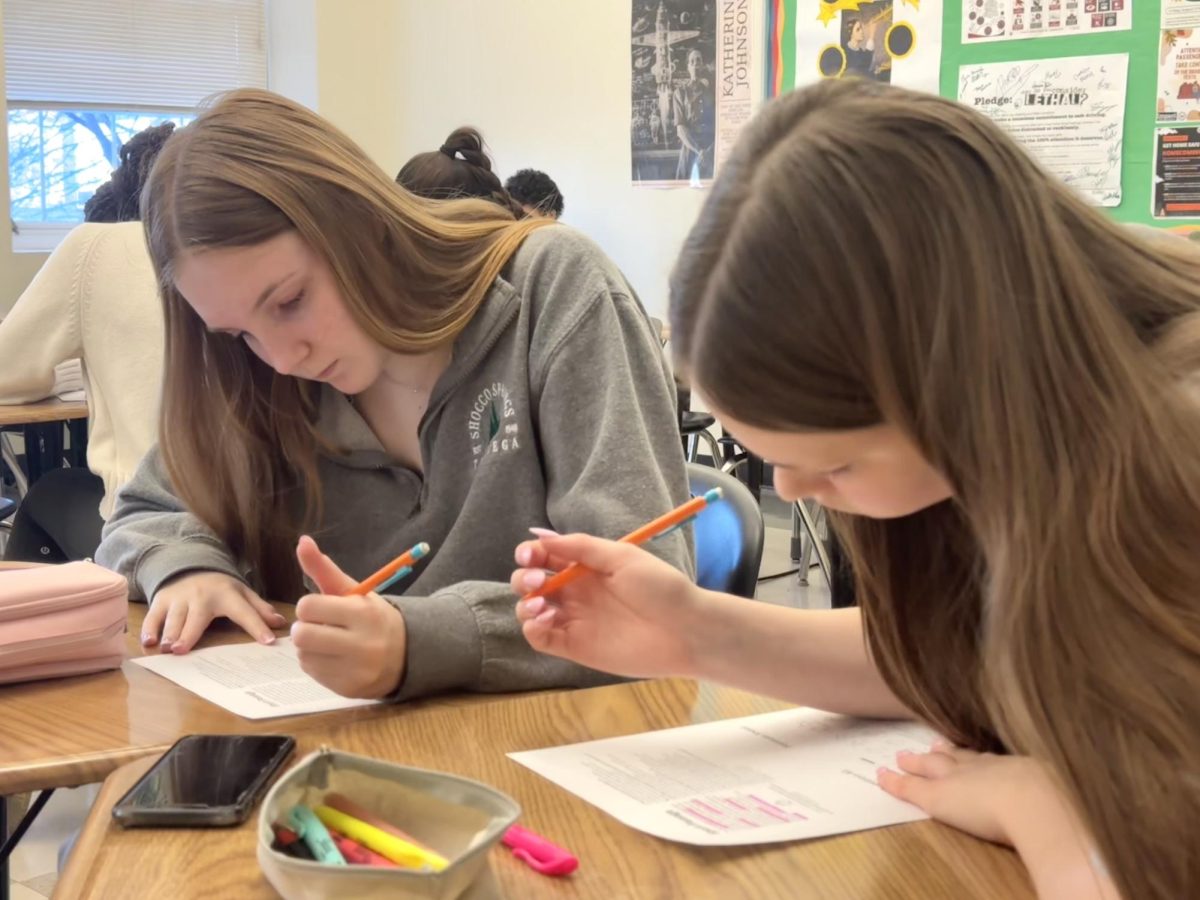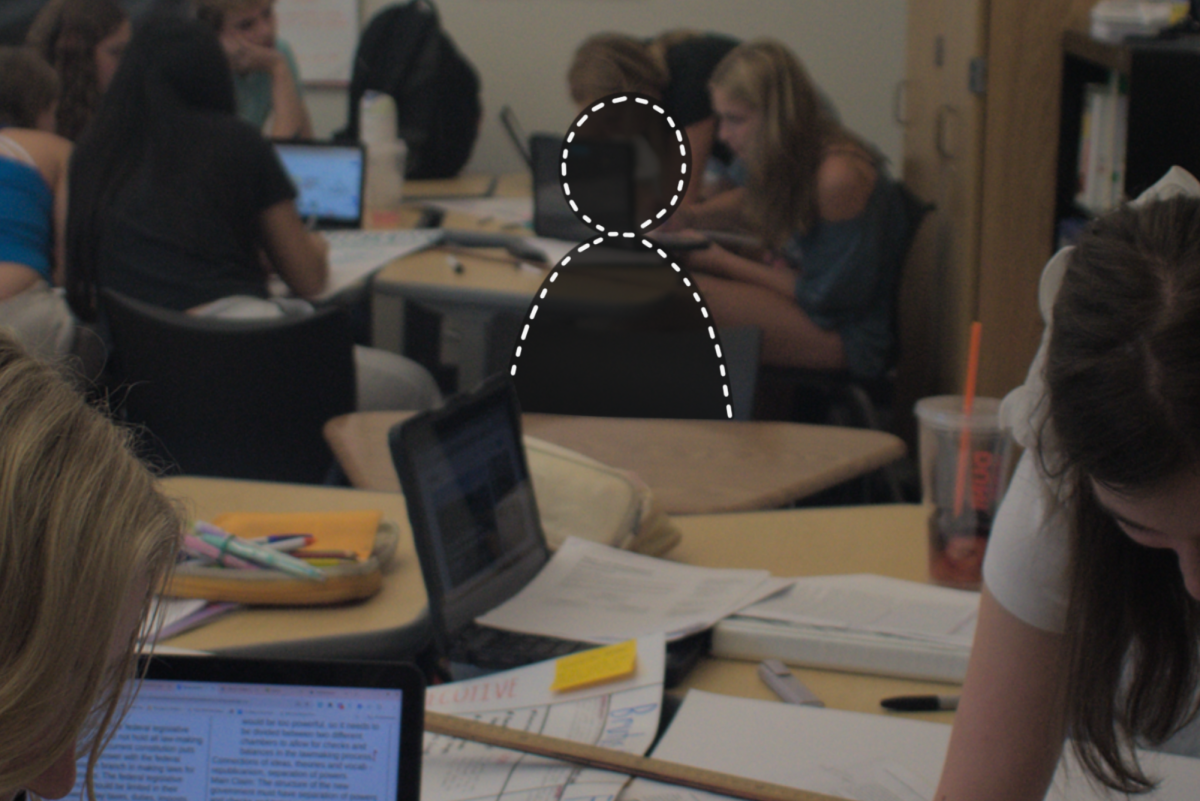Midtown’s SAT prep program, introduced this year, provides a free and structured resource that helps students improve their test scores and builds a culture of accessible academic support.
The Midtown Foundation funds the prep program, eliminating financial barriers for students.
“The school asked if we would fund the SAT prep course, and the course is consistent with the mandate of the foundation,” Jennifer Keenan, a parent and Midtown Foundation representative said. “The school provided a proposal on the SAT program, describing its structure, goals, and curriculum. A detailed overview was presented, and the foundation board voted to approve the funding.”
The program’s structure is designed to maximize accessibility and effectiveness, offering multiple tiers of participation: bronze, silver and gold. The gold plan offers three on-site practice SATs, Wednesday afternoon or evening study sessions and test-taking strategies. The silver plan is the same except for the Wednesday study sessions and the bronze plan is independent study with all the study materials provided.
“We have noticed over the years that the SAT day administration that happens here at Midtown High School is often, not in every case, the first SAT that students take,” Assistant Principal Carrie MacBrien said. “And many students go into it to establish, like their baseline. They do no preparation, and they just go into it, and they take it cold. We wanted students to really maximize this opportunity to get the highest score they possibly could on the SAT, and you can only do that by preparing ahead of time. So that was why we put together this comprehensive two-and-a-half month program for students.”
A trend of going test-optional became popular in the past few years, but many college admission offices are returning to their test requirement standards, which makes the new prep program even more important.
“Over the past few years, more colleges have moved back to requiring the SAT or ACT for admissions,” Keenan said. “This program is a free resource that can benefit all Midtown juniors, giving them a chance to prepare without the high costs associated with private tutoring.”
For students like junior Matthew Weldegaber, the program has helped kickstart SAT prep and kept them accountable. SAT prep typically costs $50 per book for self-study, $100 to $1400 per online course, $800 to $1800 per in-person course and $40 to $200 per hour for one-on-one tutoring.
“I decided to join because it was free,” Weldegaber said. “It’s better than paying for a tutor, and I figured I might as well get that extra practice. The gold package, which I chose, includes in-person sessions with teachers. It’s more structured and interactive than the self-study options.”
Weldegaber believes the provided prep plan is well-organized and easy to follow.
“They give you a very strict plan to follow, which is a lot easier than trying to come up with one on your own,” Weldegaber said. “If you take studying seriously, there are only benefits to this program.”
The program gives students a clear and manageable plan to follow and relieves them from any stress that comes with making your own study plan.
“It’s a great way for students to learn general test taking strategies because students may go on to take other exams, like the LSAT, the GRE, MacBrien said. “A lot of these test skills transfer, but you have to get over that first hurdle, and that’s the SAT. We just want students to have the highest scores possible so that they can have a lot of choices and options available to them for their post secondary plans.
For some students, the program offers an opportunity to improve study habits that can be applied to later college entrance exams such as the ACT.
“I originally wasn’t going to get an SAT tutor because my mom believed I could do it myself,” junior Naomi Kester said. “But I wanted that extra push and guidance, so I signed up. Having a structured plan from a third party makes a big difference,”
Kester also complimented the program’s flexibility because it allows her to still pursue extracurricular activities and complete school work.
“The three tiers allow you to choose the level of commitment that works best for your schedule,” Kester said. “I opted for the silver package, which still includes crucial Saturday tests but leaves my school week open for other commitments. It’s been really accommodating.”
Kester also believes the program has potential to foster broader academic skills.
“I expect it to grow my SAT score by at least 20 or 30 points,” Kester said. “But beyond that, I think it will help me develop better study habits that I can transfer to my ACT prep and other areas.”
To maintain accountability, there are checkpoints throughout the program for students to see their growth.
“We talked about receiving a report at the conclusion of the program, showing the growth from the first practice test to the last,” Keenan said. “It’s important to see measurable outcomes to ensure the program’s success.”
As students work through their study plans and practice tests, many are already seeing the value of the program.
“I’ve been recommending it to my friends,” Kester said. “It’s such an easy way to prepare for the SAT. It’s free, accommodating and accessible to anyone, unlike many costly prep courses.”
The program’s accessibility makes the test prep option easier for all Midtown students.
“There are a lot of private tutoring resources available, but they’re expensive,” Keenan said. “This initiative ensures that every junior at Midtown has the opportunity to prepare for their exams without financial strain.”
The program currently focuses on juniors, and although there are no current plans for expansion, that may change based on the program’s success.
“I think the school felt the most effective program would be targeted to juniors and tied to the in-school SAT administration date,” Keenan said. “Any future expansion would depend on the outcomes of this initial effort.”




















